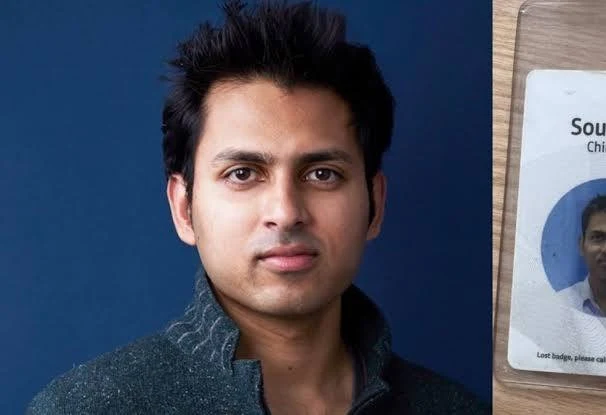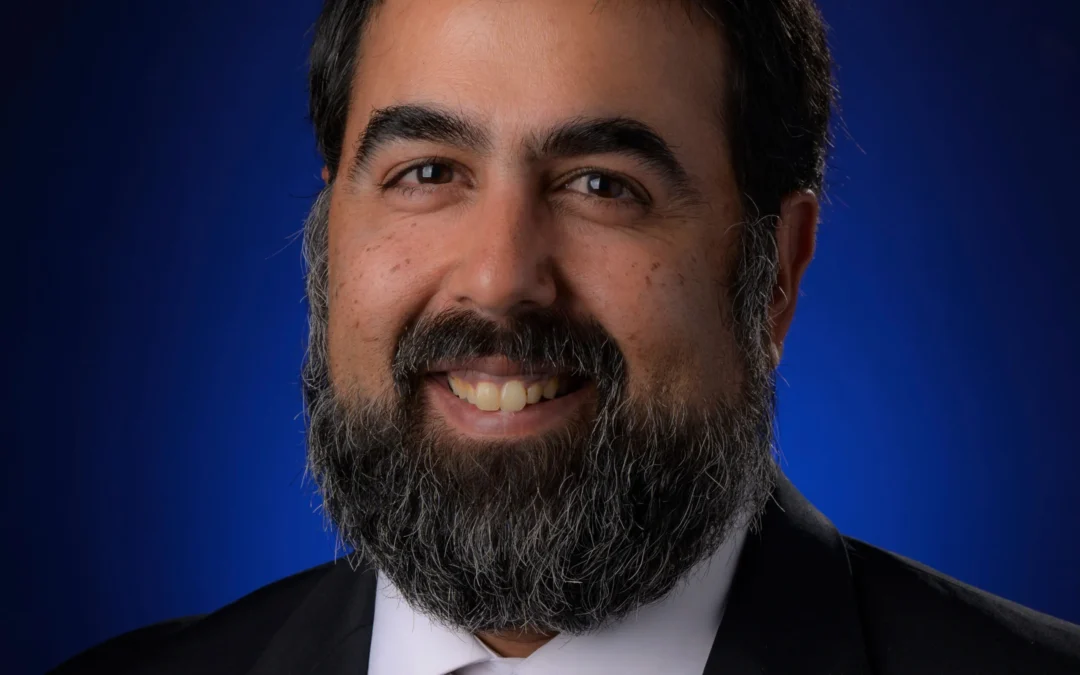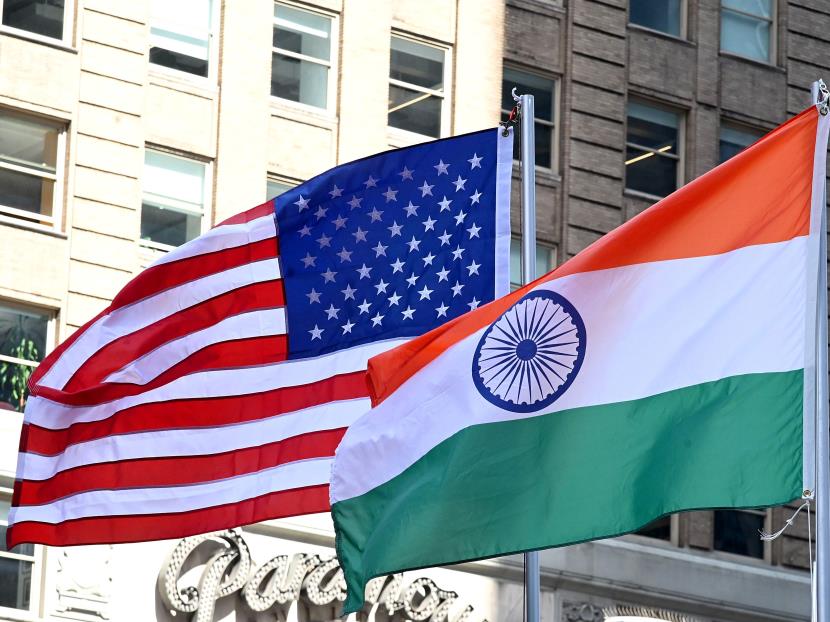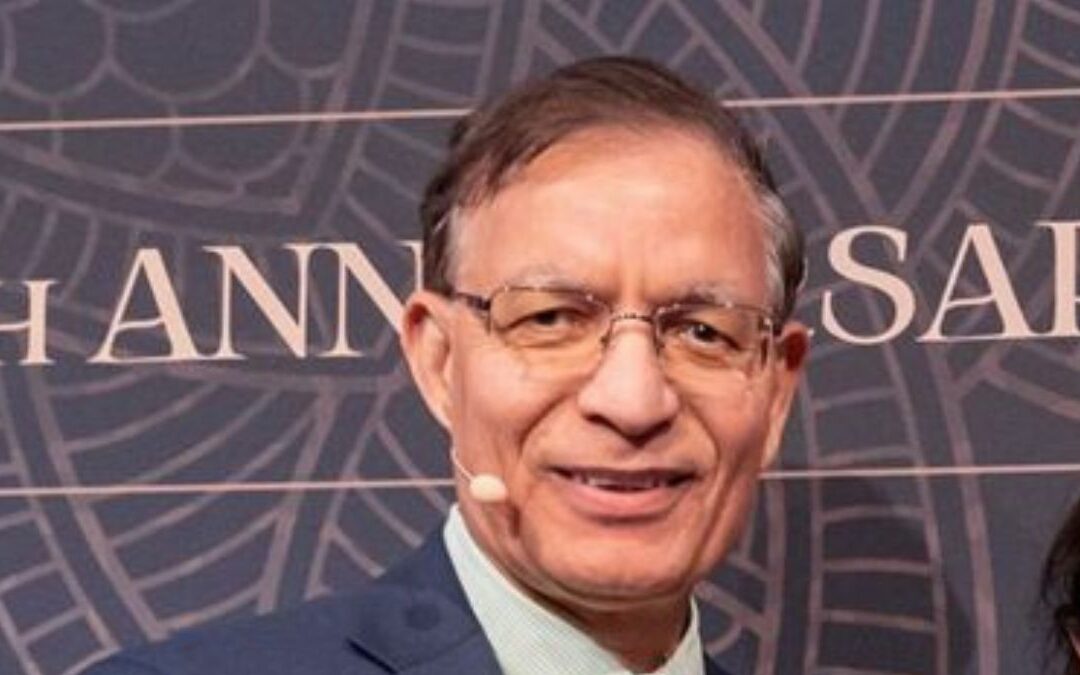
by Hind Himalaya Staff | Nov 14, 2025 | Editors Choice, Indian-American
Reading Time: 2 minutesRenowned Indian-American AI researcher Soumith Chintala, known for his co-creation of PyTorch, has recently announced his departure from Meta after an illustrious 11-year tenure.
In a recent statement posted on X, Chintala expressed his desire to explore new opportunities beyond his work with PyTorch at Meta. Having started as a software engineer in 2014, Chintala ascended to the position of Vice President within the tech company led by Mark Zuckerberg. Notably, his LinkedIn profile once identified him as the key figure behind Meta’s AI initiatives. PyTorch, the open-source deep learning framework that Chintala contributed significantly to, has gained widespread recognition in the field of artificial intelligence. Chintala reflected on his time at Meta and the evolution of PyTorch, acknowledging the challenges and achievements that came with spearheading its development. The software library allows developers and researchers to construct and train AI models in a more intuitive manner compared to traditional frameworks.
Chintala’s journey from a student in Hyderabad, India, to a Vice President at Meta exemplifies his resilience and determination. Despite early academic struggles in mathematics, Chintala’s passion for technology propelled him to pursue a Bachelor of Technology in Information Technology from Vellore Institute of Technology. Following his undergraduate studies, he faced numerous obstacles in securing admission to universities in the United States, eventually landing a spot at New York University for a Master’s in Computer Science. During his time at NYU, Chintala collaborated on cutting-edge deep learning projects under the mentorship of Yann LeCun, a pivotal experience that laid the foundation for his future contributions to AI research. Chintala’s career trajectory involved roles at Amazon and MuseAmi, where he honed his skills in developing AI models for various applications. His journey culminated in a prominent position at Facebook AI Research (FAIR), now part of Meta AI, where he played a key role in advancing AI infrastructure and research initiatives.
Despite early setbacks and challenges, Chintala’s persistence and dedication ultimately led to his recognition as an exceptional talent in the field of AI. His accomplishments, including obtaining a US green card through the EB-1 category for “aliens of extraordinary ability,” underscore his unwavering commitment to overcoming obstacles and achieving success in his career.

by Hind Himalaya Staff | Sep 6, 2025 | Indian-American
Reading Time: < 1 minute
Indian American space veteran Amit Kshatriya has been appointed as the associate administrator of NASA, the top civil-service role at the U.S. space agency.
The announcement was made by Acting Administrator Sean P. Duffy on September 3rd, 2025. Kshatriya’s leadership in advancing America’s next era of space exploration was commended by Duffy.
In his new role, Kshatriya will serve as the chief operating officer of NASA, overseeing the agency’s ten center directors and mission directorate associate administrators. He will also act as the principal advisor to Administrator Duffy, overseeing day-to-day operations and long-term strategy. Having a 20-year tenure at NASA, Kshatriya previously served as deputy head of the Moon to Mars Program within the Exploration Systems Development Mission Directorate. He played a pivotal role in developing the Artemis program, which aims to land astronauts on the Moon and prepare for humanity’s first mission to Mars.
Kshatriya’s career highlights include serving as a mission control flight director, leading the International Space Station’s 50th Expedition, and serving as lead robotics officer during the Cargo Dragon demonstration mission. He has been recognized with NASA’s Outstanding Leadership Medal and the Silver Snoopy Award for contributions to crew safety. Educated at the California Institute of Technology (B.S. in Mathematics) and the University of Texas at Austin (mechanical engineering), Kshatriya is known for combining technical expertise with strategic vision. Duffy emphasized Kshatriya’s elevation as a reflection of NASA’s focus on making the Artemis program central to its mission.
With this appointment, Kshatriya joins a growing list of Indian Americans playing key roles in U.S. science and technology leadership, highlighting the community’s expanding influence in shaping the future of space exploration.

by Hind Himalaya Staff | Sep 4, 2025 | @HH Bright Zone, Editors Choice
Reading Time: 2 minutes
Karthik Nayani, an Indian American assistant professor of chemical engineering at the University of Arkansas, has been awarded a prestigious five-year, $500,000 grant from the National Science Foundation (NSF) CAREER program. Nayani, a graduate of the Indian Institute of Technology, Kanpur, will be conducting research to investigate how rod-shaped DNA strands facilitate the movement of particles within cells to create specialized compartments. This research has the potential to significantly impact the development of faster and more sensitive diagnostic tests for infectious diseases and genetic abnormalities. The NSF CAREER program supports early-career faculty who demonstrate exceptional promise in both research and education. Nayani’s project aims to unravel the mechanisms behind liquid-liquid phase separation induced by rod-shaped particles within cells. By studying the role of DNA in cellular processes, Nayani hopes to shed light on the fundamental principles governing the organization of cellular components. Nayani’s innovative research methodology involves introducing disk-shaped particles into cells, which are then rearranged by DNA into rod-like structures through a process known as depletion. This unique approach could revolutionize the field of diagnostic testing by enabling the rapid detection of specific DNA sequences with high sensitivity. In addition to his work on cellular dynamics, Nayani is also involved in developing technologies for more efficient lithium extraction in Arkansas, funded by an Arkansas Research Alliance grant. His multidisciplinary research interests encompass soft matter physics, a field that explores the behavior of materials that exhibit properties of both solids and liquids. As part of his NSF CAREER award, Nayani plans to engage K-12 students in educational programs that highlight the applications of soft matter physics and chemical engineering in everyday phenomena. By fostering an interest in STEM fields at a young age, Nayani aims to inspire the next generation of scientists and engineers to explore the fascinating world of soft materials and their impact on various industries. With a background in chemical engineering and a strong foundation in research, Nayani’s contributions to the scientific community have the potential to advance our understanding of cellular processes and drive innovation in diagnostic technologies.

by Hind Himalaya Staff | Jul 12, 2025 | Editors Choice, Immigration, Indian-American
Reading Time: < 1 minute
Under this bill, the cost of a US visa will increase by 2.5 times starting in 2026. Travelers visiting the country will be required to pay a non-refundable integrity fee of USD 250.
This development is expected to impact Indian students and IT professionals traveling to the US for educational and employment purposes. Furthermore, the fee may be adjusted annually based on the inflation rate. Previously, obtaining an American visa was relatively straightforward for students, IT professionals, and tourists, with minimal financial impact. However, with the implementation of the One Big Beautiful Bill, traveling to the US is poised to become a significant financial burden for travelers.
President Donald Trump signed this new law on July 4, with the intention of making America “great again.” The Visa Integrity Fee, amounting to USD 250 (approximately Rs 21,400), will be enforced starting in 2026 and will not be refundable.
It is important to note that this fee is subject to change each year based on inflation rates. The Visa Integrity Fee is part of a broader reform in travel-related fees, including a USD 24 fee on I-94, a USD 13 cost in the Visa Waiver Program, and a USD 30 EVUS tax imposed on Chinese citizens. Currently, US B-1/B-2 visa fees stand at USD 185, with a significant increase expected in 2026.

by Hind Himalaya Staff | Jul 9, 2025 | Editors Choice, Indian-American
Reading Time: < 1 minuteJay Chaudhry, a distinguished alumnus of the Indian Institute of Technology BHU, founded Zscaler in 2008, a prominent cybersecurity firm that successfully went public in March 2018. His substantial net worth primarily stems from his ownership stake in the Nasdaq-listed company. With a net worth exceeding $17.9 billion, Jay Chaudhry has emerged as the wealthiest Indian-American in the United States, as reported by Forbes in its compilation of America’s Richest Immigrants 2025.
Forbes noted a notable increase in immigrant billionaires from 92 in 2022 to 125 in 2025, including notable figures such as Sundar Pichai of Google and Satya Nadella of Microsoft. These immigrant billionaires collectively hold a record $1.3 trillion in wealth, constituting 18% of America’s total billionaire wealth of $7.2 trillion. India led the list with 12 billionaires, followed by Israel, Taiwan, and China.
A graduate of the Indian Institute of Technology BHU, Jay Chaudhry moved to the United States in 1980 to pursue a master’s program in engineering and management at the University of Cincinnati. Currently residing in Reno, Nevada, Chaudhry and his family own approximately 40% of Zscaler, his successful cybersecurity venture. Prior to Zscaler, he founded and successfully sold four tech companies – SecureIT, CoreHarbor, CipherTrust, and AirDefense. Chaudhry’s entrepreneurial journey began in 1996 when he and his wife, Jyoti, embarked on their startup ventures with their savings, starting with SecureIT.
Despite humble beginnings in a village in India without basic amenities such as electricity and running water until Class 10, Jay Chaudhry has defied odds to become the wealthiest Indian-American, showcasing resilience and determination in his path to success.





